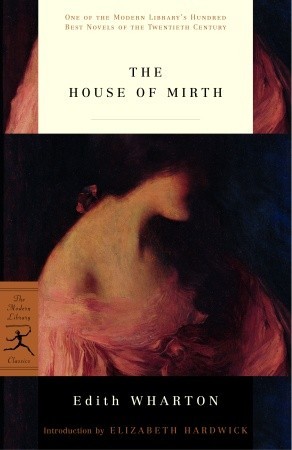To follow up 17th Street’s special book blog series on The Alienist, I have decided to present one of my favourite classics by another renowned New York author, Edith Wharton, as the first 17th Street book blog for 2015 given that it also explores several of The Alienist’s central themes. Even though I have never seen any interviews in which Caleb Carr has commented on Edith Wharton’s work, Edith is unquestionably one of the masters of social commentary and psychological insight when it comes to the world of gilded age New York, and The House of Mirth is an excellent starting point for any readers of the Alienist books who might be unfamiliar with her work, with its themes ranging from the role of women in society to psychological determinism.
What’s it about?
It is the turn of the twentieth century, and the beautiful Miss Lily Bart, one of the darlings of New York society, is 29, unmarried, and in need of a husband in order to keep living the luxurious life to which she became accustomed prior to her family’s financial ruin several years earlier. Through Lily’s story, as well as those of the characters who surround her, we witness first-hand the moral, social, fiscal, and psychological implications of one woman’s desire for personal freedom and independence in a cut-throat world where debts—both financial and societal—must be paid, or the consequences suffered.
My thoughts
In his Introduction to Edith Wharton’s autobiography, A Backward Glance, Louis Achincloss wrote:
It was said of Edith Wharton that she and Theodore Roosevelt were self-made men, and the saying pleased her. She and the president, contemporaries and good friends, had grown up together and escaped from the kind of society that was the hardest of all to escape from: the secure, complacent haute bourgeoisie of the late nineteenth century that found politics too dirty for gentlemen and letters too inky for ladies.
Not surprisingly, the concept of personal freedom and what it meant for women and men in the late nineteenth century runs deep in Edith’s 1905 novel, and is evident as early as The House of Mirth’s opening scene. In this scene, Lily Bart is passing time in her friend Lawrence Selden’s bachelor flat while she awaits a train to take her upstate for the summer. While the pair take tea together in Selden’s flat, we are presented with the contrast of an intelligent young woman who feels that she must marry in order maintain her position in society with that of a similarly aged young man who is more than capable of maintaining his position whilst also retaining his independence.
Book 1, Chapter 1:
“But do you mind [having to work] enough—to marry to get out of it?”
Selden broke into a laugh. “God forbid!” he declared.
She rose with a sigh, tossing her cigarette into the grate.
“Ah, there’s the difference—a girl must [marry], a man may if he chooses.” She surveyed him critically. “Your coat’s a little shabby—but who cares? It doesn’t keep people from asking you to dine. If I were shabby no one would have me: a woman is asked out as much for her clothes as for herself. The clothes are the background, the frame, if you like: they don’t make success, but they are a part of it. Who wants a dingy woman? We are expected to be pretty and well-dressed till we drop—and if we can’t keep it up alone; we have to go into partnership.”
Of course, as we have recently seen in The Alienist book blog series, as well as in the Education of Sara Howard history blog series, there was also a growing movement among middle and upper class women in the late nineteenth and early twentieth centuries to push back against the prevailing view that the only respectable occupation for women in society was as a doting wife and mother in the home. We see such women represented in the Alienist books by Sara Howard, and Edith Wharton did not fail to represent these women in The House of Mirth either given her inclusion in the novel of Selden’s cousin, Gertrude Farish. However, in typical Wharton style, Edith pulled no punches in describing how independent women like Gerty were viewed in society, even by those women who might have envied their level of personal freedom.
| Continue reading →

